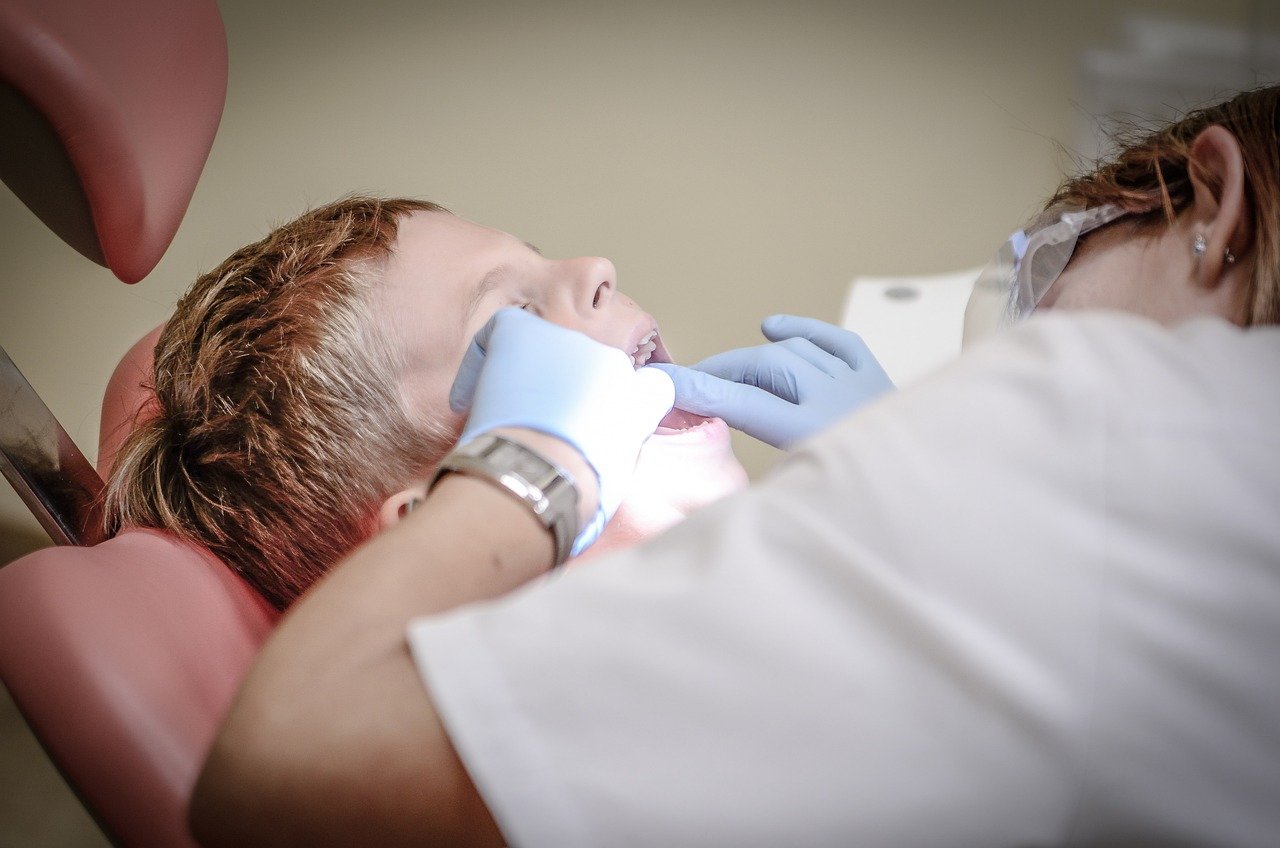Addressing Dental Health Concerns Specific to Those With diabetes
#ez-toc-container {
background: #f9f9f9;
border: 1px solid #aaa;
border-radius: 4px;
-webkit-box-shadow: 0 1px 1px rgba(0, 0, 0, .05);
box-shadow: 0 1px 1px rgba(0, 0, 0, .05);
display: table;
margin-bottom: 1em;
padding: 10px 20px 10px 10px;
position: relative;
width: auto;
}
.ez-toc-container-direction {
direction: ltr;
}
.ez-toc-list-level-1 a{
font-weight:bold;
}
Table of Contents
1. Introduction to the Intersection of Diabetes and Dental Health
Diabetes, a chronic health condition characterized by high levels of sugar (glucose) in the blood, impacts millions of individuals globally. It’s a metabolic disorder that affects how your body processes blood sugar, leading to a range of potential complications if not managed properly. In this segment, we delve into the intersection of diabetes and dental health, exploring how this systemic disease can influence oral health and the importance of maintaining good dental hygiene for individuals with diabetes.
First, let’s unpack the foundation. Diabetes is primarily classified into two types: Type 1 diabetes, where the body does not produce insulin, and Type 2 diabetes, where the body becomes insulin resistant. There is also gestational diabetes, which occurs during pregnancy. Regardless of the type, uncontrolled diabetes can lead to serious health issues, including nerve damage, kidney disease, vision problems, and cardiovascular complications.
-
Explanation of Diabetes and its Impact on Overall Health:
Diabetes affects many parts of the body. High blood glucose levels lead to a cascade of health issues due to the narrowed and damaged blood vessels. This impacts the delivery of nutrients and oxygen to various tissues, increasing the risk of heart disease, stroke, kidney damage, and more. The body’s immune system also weakens, making diabetic individuals more susceptible to infections.
-
Overview of How Diabetes can Specifically Affect Dental Health:
The correlation between diabetes and dental health is significant yet often under-recognized. Here are several ways in which diabetes can adversely impact oral health:
-
Gum Disease (Periodontitis):
Individuals with diabetes are at an increased risk for severe gum disease due to impaired immune responses and circulation problems. High blood sugar levels facilitate the growth of power-hungry bacteria in the mouth, leading to the destruction of gum and bone that hold the teeth in place.
-
Dry Mouth (Xerostomia):
A common symptom among those with diabetes, dry mouth is not just uncomfortable—it can lead to sores, infections, and tooth decay. Saliva is vital as it helps neutralize acids produced by bacteria in the mouth, washing away food particles and providing disease-fighting substances.
-
Thrush:
Candidiasis or thrush is an infection caused by the yeast Candida albicans, which flourishes in the high-sugar environment of a diabetic’s mouth. It manifests as painful white or red patches on the gums and tongue.
-
Slow Healing:
Diabetes can impair the body’s ability to heal after oral surgery or dental procedures. This delay can increase the risk of infection and longer recovery periods following treatment.
-
Gum Disease (Periodontitis):
-
Importance of Understanding and Addressing Dental Issues for Diabetics:
Given the interconnectedness of dental health and diabetes, it is crucial for individuals living with diabetes to actively address and manage their oral health. Here are some reasons why this is important:
-
Preventive Care Reduces Complications:
Regular dental check-ups and good oral hygiene can prevent the development of severe periodontal disease. Since gum disease has been linked with worsening blood glucose control, managing oral health can contribute to better management of diabetes.
-
Improved Quality of Life:
Maintaining good oral hygiene enhances overall health and allows individuals to enjoy a better quality of life, free from pain and discomfort that accompany dental issues.
-
Reduction of Medical Costs:
Preventing gum disease and other dental issues can substantially reduce medical costs associated with diabetes-related complications.
-
Increased Awareness and Education:
Educational initiatives that raise awareness about the link between diabetes and oral health can empower individuals to take proactive steps in managing their dental care effectively.
-
Preventive Care Reduces Complications:
In summary, understanding the impact of diabetes on dental health is paramount for effective management of both conditions. As the relationship between these health aspects becomes increasingly evident, healthcare providers are emphasizing the integration of oral health into the overall diabetes management plan. This holistic approach not only aids in maintaining better glycemic control but also ensures a fuller, healthier life for those living with diabetes.

2. Common Dental Problems Faced by Individuals with Diabetes
Introduction to Dental Problems in Diabetic Patients
Individuals with diabetes need to be particularly aware of the connection between their condition and oral health issues. The high blood sugar levels associated with diabetes can contribute to a range of dental problems, making regular dental care crucial. In this segment, we’ll delve into common dental issues faced by those with diabetes, specifically focusing on periodontal disease, oral thrush, and dry mouth.
Periodontal Disease and Its Prevalence Among Diabetic Patients
Periodontal disease, commonly known as gum disease, is a significant concern for individuals with diabetes. This condition involves the inflammation and infection of gums and bones that support the teeth. Here’s a detailed look at its prevalence and implications:
- High Prevalence: Research shows that individuals with diabetes are more susceptible to periodontal disease. The inflammatory process can exacerbate blood sugar levels, creating a vicious cycle of health complications.
- Inflammation Connection: Diabetes affects the body’s ability to respond to infections. This impaired response leads to an increased risk of gingivitis (mild form) and periodontitis (advanced form), causing serious gum damage.
- Impact on Blood Sugar Levels: Periodontal disease can affect blood glucose control and may contribute to the progression of diabetes. Managing gum health can be part of a larger strategy to maintain blood sugar levels.
Taking active steps in dental hygiene, such as regular brushing, flossing, and dental visits, can significantly reduce the risk of periodontal disease in diabetic patients.
Thrush (Oral Candidiasis) and Dry Mouth
Thrush and dry mouth are other common oral problems that diabetic patients may experience:
- Oral Thrush:
- Definition: Thrush is a fungal infection caused by Candida albicans, manifesting as white patches in the mouth. It can occur more frequently in individuals with diabetes due to weaker immune system defense.
- Contributing Factors: High sugar levels in saliva can promote the growth of fungi. Additionally, prolonged use of antibiotics, which reduce beneficial bacteria, can pave the way for fungal infections.
- Prevention and Treatment: Maintaining good blood sugar control and practicing excellent oral hygiene can help prevent thrush. Antifungal medications may be necessary for treatment.
- Dry Mouth:
- Definition and Causes: Also known as xerostomia, dry mouth occurs when the salivary glands do not produce enough saliva. It is common in diabetes due to dehydration resulting from high blood sugar levels.
- Effects: Lack of saliva increases the risk of decay and infections as saliva helps in neutralizing acids produced by bacteria and washing away food particles.
- Management: Drinking plenty of water, using saliva substitutes, and chewing sugar-free gum can help stimulate saliva production. Regular dental check-ups are also vital.
High Blood Sugar Levels and Increased Dental Problems
Chronic high blood sugar levels are a hallmark of diabetes and directly relate to dental health complications:
- Increased Risk of Infections: High glucose levels in the blood and saliva feed harmful bacteria, increasing the risk of oral infections and related problems.
- Delayed Healing: Elevated blood sugar can hinder normal healing processes, complicating recovery from oral issues or surgeries.
- Complication Cycle: Poor oral health can further exacerbate diabetes by affecting blood sugar control, creating a continuous cycle of health challenges.
Overall, awareness and proactive management of these common dental issues can make a substantial difference in the oral health and overall well-being of individuals with diabetes. Regular consultations with a dental professional, coupled with diligent self-care practices, form the cornerstone of effective management of diabetes-related dental complications.

3. Preventative Dental Care Strategies for Diabetes Patients
Preventative dental care is essential for diabetes patients due to the elevated risk of dental issues associated with the condition. Managing oral health among individuals with diabetes involves more than routine dental visits; it requires comprehensive strategies that encompass regular check-ups, daily oral hygiene practices, and a concerted effort in nutrition and blood sugar control. This segment explores these key strategies and their importance in promoting optimal oral health for diabetes patients.
Importance of Regular Dental Check-ups and Professional Cleanings
Diabetes patients are particularly susceptible to periodontal (gum) disease, making regular dental check-ups and cleanings fundamental. These professional visits serve as a frontline defense against the complications that can arise due to unmanaged oral health.
- Gum Disease Prevention: Regular dental check-ups allow for early detection and treatment of gum disease, which can progress more rapidly in individuals with diabetes.
- Monitoring and Maintenance: Dentists can monitor oral health conditions more closely in diabetic patients, ensuring that any changes can be addressed immediately.
- Professional Cleanings: Regular professional cleanings help remove tartar and plaque, reducing the risk of cavities and gum disease.
- Education: During check-ups, dental professionals can provide tailored advice on maintaining oral hygiene specific to diabetes-related challenges.
Daily Oral Hygiene Practices Tailored for Diabetics
Maintaining a daily oral hygiene regimen is crucial for diabetes patients. Tailored daily practices can significantly reduce the risk of dental complications:
- Brushing: Brush at least twice a day with a soft-bristled toothbrush and fluoride toothpaste to remove plaque and prevent cavities and gum disease.
- Flossing: Floss daily to reach areas that a toothbrush cannot, removing food particles and reducing plaque buildup.
- Use of Antimicrobial Mouthwash: Consider incorporating an antimicrobial mouthwash to reduce oral bacteria and plaque formation.
- Proper Denture Care: For those with dentures, ensure they are cleaned daily to prevent infections or sores.
- Monitor for Oral Changes: Pay attention to any changes in your oral health and report them to your dentist promptly.
- Hydration: Stay hydrated to combat dry mouth, a common issue among diabetes patients, which can increase the risk of tooth decay.
Nutrition and Blood Sugar Control in Maintaining Oral Health
Nutrition and blood sugar levels have a direct impact on oral health. Diabetes patients must be diligent in these areas to prevent dental issues:
- Balanced Diet: Consume a balanced diet rich in vitamins and minerals that support oral health. Foods high in calcium, vitamin D, and phosphorus strengthen teeth and bone.
- Limit Sugary Foods: Control the intake of sugary and starchy foods as they contribute to plaque buildup and tooth decay.
- Blood Sugar Monitoring: Keep blood sugar levels within target ranges to reduce the risk of developing severe gum disease. High blood sugar levels weaken the body’s natural defenses, including those that protect oral health.
- Consistent Meal Timing: Regular meal timings help in maintaining stable blood sugar levels, reducing the stress and damage to oral tissues.
The intersection of effective oral hygiene and comprehensive diabetes management significantly enhances oral health outcomes for diabetes patients. By adhering to regular dental check-ups, prioritizing daily oral hygiene, and maintaining nutritional and blood sugar control, individuals with diabetes can reduce their risk of dental complications and maintain healthy teeth and gums for life.
4. Treatment Options and Tips for Managing Dental Health with Diabetes
Managing dental health can be particularly challenging for individuals with diabetes due to the increased risk of oral health issues such as gum disease, tooth decay, and infections. However, understanding the treatment options available and following effective management strategies can significantly mitigate these risks. In this segment, we’ll explore the various treatments available for diabetic-induced dental problems, the importance of personalized dental care plans, and some essential tips for managing dental health post-treatment to prevent recurrence.
Overview of Treatments Available for Diabetic-Induced Dental Problems
Individuals with diabetes often face unique dental health challenges, but there are several treatment options available to address these issues effectively:
- Periodontal Treatment: Given that people with diabetes are more prone to gum disease, periodontal treatment is crucial. This involves deep cleaning procedures such as scaling and root planing, which remove plaque and tartar from below the gum line.
- Antibiotics: In cases where infections are present, dentists may prescribe antibiotics to curb bacterial growth and inflammation.
- Oral Surgery: For severe gum disease cases where tissue or bone loss has occurred, surgical interventions such as flap surgery or bone grafts might be necessary.
- Restorative Treatments: To address tooth decay, restorative treatments such as fillings, crowns, or even root canals might be required.
- Moisturizing Mouthwashes: Since diabetes can cause dry mouth (xerostomia), specific mouthwashes and saliva substitutes can help alleviate symptoms and reduce the risk of cavities.
- Orthodontic Appliances: For patients experiencing issues like teeth misalignment, braces or aligners may be recommended to ensure proper oral hygiene.
Role of Personalized Dental Care Plans in Effective Management
A personalized dental care plan is essential in effectively managing dental health for individuals with diabetes. Such a plan is typically tailored to address a patient’s specific risk factors and dental health needs. Here’s how personalized care makes a difference:
- Customized Risk Assessment: Through a thorough assessment, dentists can identify specific risk factors related to the patient’s diabetes and overall health, allowing for more targeted preventive measures.
- Individualized Preventive Care: Based on the risk assessment, dentists can develop a preventive care schedule including regular cleanings and check-ups, fluoride treatments, and nutritional counseling.
- Coordinated Medical and Dental Care: Effective management also involves coordination between medical and dental care providers to adjust treatments that may influence dental health, such as changes in medication.
- Patient Education: Educating patients about the link between diabetes and oral health empowers them to take proactive steps in managing their condition.
Tips for Managing Dental Health Post-Treatment to Prevent Recurrence
Once treatment is complete, it’s vital to adopt preventative measures to maintain optimal dental health and avoid recurrence of dental issues. Here are some practical tips:
- Maintain Good Oral Hygiene: Brush your teeth at least twice a day with a fluoride toothpaste, and floss daily to remove plaque and prevent gum disease.
- Monitor Blood Sugar Levels: Keep your diabetes under control to prevent its impact on your oral health. Uncontrolled blood sugar can exacerbate oral infections.
- Regular Dental Check-ups: Schedule dental visits at least twice a year, or as recommended by your dentist, to monitor your oral health and catch any issues early.
- Stay Hydrated: Drink plenty of water to help wash away food particles and reduce dry mouth symptoms.
- Avoid Tobacco Products: Smoking increases the risk of gum disease, so refraining from tobacco use can significantly improve oral health outcomes.
- Healthy Diet: Adopt a balanced diet that is low in sugar to minimize the risk of tooth decay. Include plenty of fruits, vegetables, and whole grains.
- Use Antibacterial Mouthwash: Using a therapeutic mouthwash can reduce bacteria in the mouth, helping to prevent gum disease and decay.
By understanding the treatment options and implementing these management tips, individuals with diabetes can protect their dental health and enhance their overall quality of life. Regular communication with healthcare providers will ensure that both diabetes and dental health are managed effectively, contributing to better long-term health outcomes.







